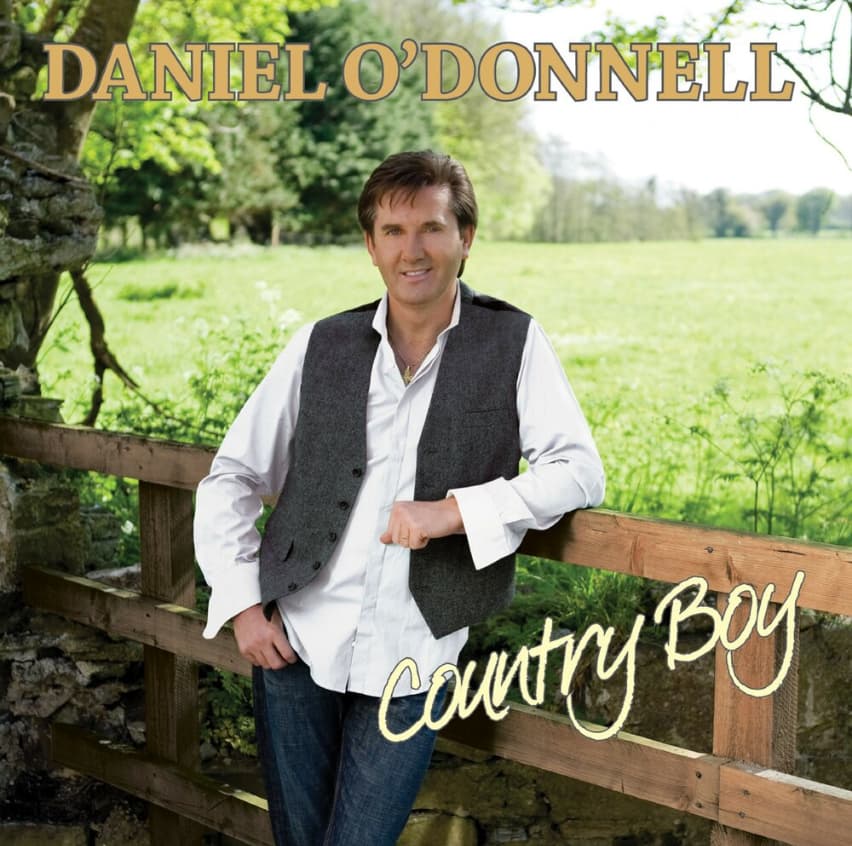
A Heartrending Farewell and Enduring Hope: The Enduring Legacy of “Danny Boy”
Daniel O’Donnell‘s rendition of “Danny Boy” is more than just a song; it’s an experience, a poignant journey into the depths of longing and the enduring power of love. While pinpointing an exact chart position for O’Donnell’s version is difficult (as it’s a traditional song covered by countless artists), it’s undeniable that his performance has resonated deeply with audiences, particularly those who appreciate the rich tapestry of Irish musical heritage. This version often features on his numerous albums and live performances, solidifying its place in his extensive repertoire, notably appearing on albums like “From the Heart” and various live concert DVDs such as performances from the Ulster Hall and Waterfront Hall in Belfast.
The story of “Danny Boy” is shrouded in some mystery. The melody, known as “Londonderry Air,” is an old Irish folk tune collected by Jane Ross of Limavady in County Londonderry (now Derry) and published in 1855. However, the lyrics we know today were written by English songwriter Frederic Weatherly in 1910, originally intended for a different tune. It wasn’t until 1913 that he adapted the words to “Londonderry Air,” creating the iconic song we cherish.
The meaning of “Danny Boy” has been interpreted in various ways. One popular interpretation suggests it’s a farewell from a parent to a son going off to war, perhaps during the American Civil War or World War I. The lines “Oh, Danny boy, the pipes, the pipes are calling / From glen to glen, and down the mountain side” evoke images of a soldier being called to duty, leaving behind loved ones. The anticipation of his return is palpable in the lyrics, with promises of spring’s return and the hope of seeing him again.
Another interpretation sees the song as a lament for a lost love, a poignant farewell to someone who has passed away. The lines “But when ye come, and all the flowers are dying / If I am dead, as dead I well may be” paint a melancholic picture of loss and remembrance. Regardless of the specific interpretation, the song’s core message is one of enduring love, hope, and the bittersweet nature of farewells.
Daniel O’Donnell‘s gentle and sincere delivery of “Danny Boy” amplifies the song’s emotional depth. His warm vocals and heartfelt phrasing connect with listeners on a deeply personal level, evoking a sense of nostalgia and longing. For older audiences, particularly those with Irish roots or those who have experienced loss and separation, O’Donnell’s rendition becomes a powerful reminder of shared experiences and the enduring power of music to heal and connect. The simplicity of the arrangement, often featuring traditional instruments like the Irish flute or pipes, further enhances the song’s timeless quality. It’s a performance that doesn’t shout for attention but gently draws you in, inviting reflection and stirring memories of times gone by.
The enduring popularity of “Danny Boy,” especially through performances like Daniel O’Donnell‘s, lies in its universality. It speaks to the fundamental human experiences of love, loss, and the hope for reunion. It is a song that transcends generations, offering solace and comfort in times of both joy and sorrow. It’s a testament to the power of music to touch the soul and leave a lasting impact on the heart.